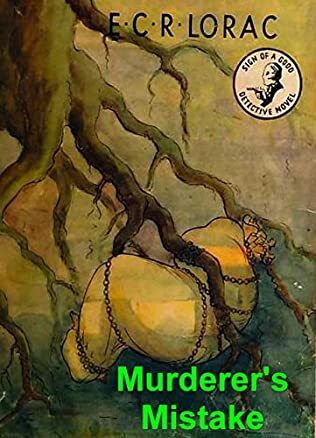Murderer’s Mistake

A review of Murderer’s Mistake by E C R Lorac
Originally published in 1946 in the UK with the title of The Theft of the Iron Pigs, this edition, available on Amazon, sports its American title. A word of warning. The Kindle version is shocking, full of typos, misprints, punctuation mistakes and, in passages, ompletely devoid of any punctuation. It makes reading the book hard going and such is Lorac’s growing new found popularity that she deserves her books to be presented better than this.
It is the 28th in her Robert Macdonald and the Scottish-born Scotland Yard detective is back in one of his favourite spots in the country, the valley of Lune in north Lancashire. He is on the tracks of a racketeer, Gordon Ginner, who is working a swindle involving clothing coupons when he receives a letter from a farmer in Lunesdale, Giles Hoggett, about some odd goings-on in his neck of the woods. Hoggett had visited a neglected old cottage that he owns and noticed something odd with the woodpile, it had been disturbed. On closer investigation he notices several items of apparently little consequence have disappeared including a pair of iron dogs that were in the hearth.
Such a trivial case would not normally interest a high flyer but coming from one of his favourite spots and with an acute nose for something odd, Macdonald decides to head up to Lunesdale, initially in his free time on a weekend but, as his enquiries seem to be uncovering a deeper and more sinister mystery, he stays on in an official capacity, entertained lavishly by the Hoggetts.
Close by Hoggett’s rarely used cottage is a pool in which Macdonald takes a bracing dip, only to find a dead body weighted down by the missing pig irons. It will come as no surprise that the victim is identified as Ginner, but what was he doing in the countryside and who killed him?
There are a number of suspects, including a poultry farmer cum artist who is down on his luck and who both knew Ginner and gave him accommodation in the area. Also high on the suspect list are a couple of potters, the Golds. They are not practitioners in the art of ceramics. Rather, potter is a northern term for a tinker, an itinerant traveller. There is also a bumptious landlord who for all his abruptness and business acumen seems remarkably tolerant of a tenant who is so behind in his rent.
The case is really one of the distinctions between country folk and townies and how country ways are difficult, if not well nigh impossible for townies to replicate convincingly. Macdonald, ably assisted by Hoggett and latterly Reeves from the Yard, work out that the culprit is someone who knew the area and was able to move around without rousing too much in the way of enquiry and yet who would make an error of small detail that would show they were not really from the area.
At best there is only one suspect who fits the bill, at a stretch two, and as the story unfolds it is fairly easy to see who the culprit is. As well as black market racketeering it is a tale of bigamous marriages and blackmail. Ginner is one of those characters for whom not much sympathy is shown and the culprit, in a dramatic finale, could easily have added to their body count but for Macdonald’s timely intervention and does the right thing, sparing the hangman some unnecessary trouble.
Lorac has a fine sense of time and place, her descriptions of the countryside and her careful explanation of country ways adds authentic colour to a mystery which might have started off slightly implausibly but is enthralling and wonderfully told. It is just a shame about the quality of the edition.



